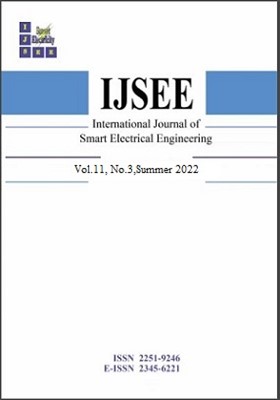Smart Management of Pollution in Integrated Energy Systems
محورهای موضوعی : مهندسی هوشمند برقGholamreza Sarlak 1 , Javad Olamaei 2 , Mohamad Dosaranian-Moghadam 3
1 - Faculty of Electrical, Biomedical and Mechatronics Engineering, Qazvin Branch, Islamic Azad University. Qazvin. Iran
2 - Department of Electrical Engineering, Islamic Azad University, South Tehran Branch, Tehran, Iran
3 - Faculty of Electrical, Biomedical and Mechatronics Engineering, Qazvin Branch, Islamic Azad University. Qazvin. Iran
کلید واژه: Renewable Energy, Integrated energy system, Smart pollution management, Methane reformer,
چکیده مقاله :
Today, energy carriers are addressed as one of the main pillars of energy generation due to the increased growth of industries in developed and developing countries. According to the global view, increased consumption of energy carriers has increased the production of greenhouse gases, the global average temperature, resulting in the faster melting of ice in Antarctica. Moreover, increased pollution due to consumption of fossil fuels for electricity generation is causing numerous problems for industrial cities, photochemical smog, and numerous lung diseases for humans and often living organisms. Due to the above reasons, using methods to minimize energy carriers consumption and applying renewable energy in order to reduce the extent of generated pollution is highly important. Using energy HUB systems might help manage energy resources properly and minimize the extent of pollution. This article has proposed a smart management system of an energy hub that includes an input (consisting of fossil fuels, renewable energy, and electricity grid) and output (consisting of consumers). The proposed system can manage energy carries and maximize the use of renewable energies, and it can absorb high levels of generated CO2 and transform it to gas energy carries in addition to save energy. Such an approach has reduced CO2 level inside the energy hub, and reduced the total cost of the system and this is because a part of gas fuel needed by the system is supplied. This article has shown that using such a system reduces the cost imposed by system pollution by 9.08%.


